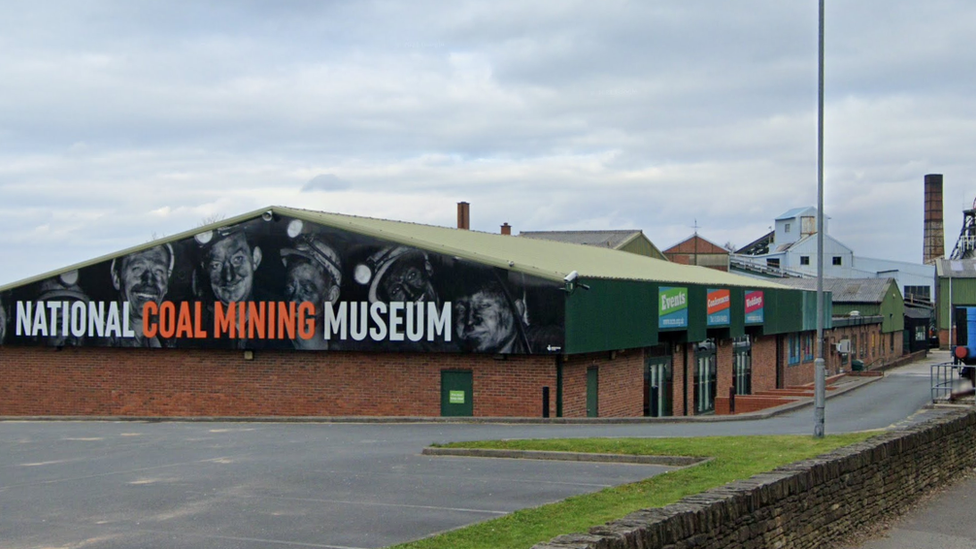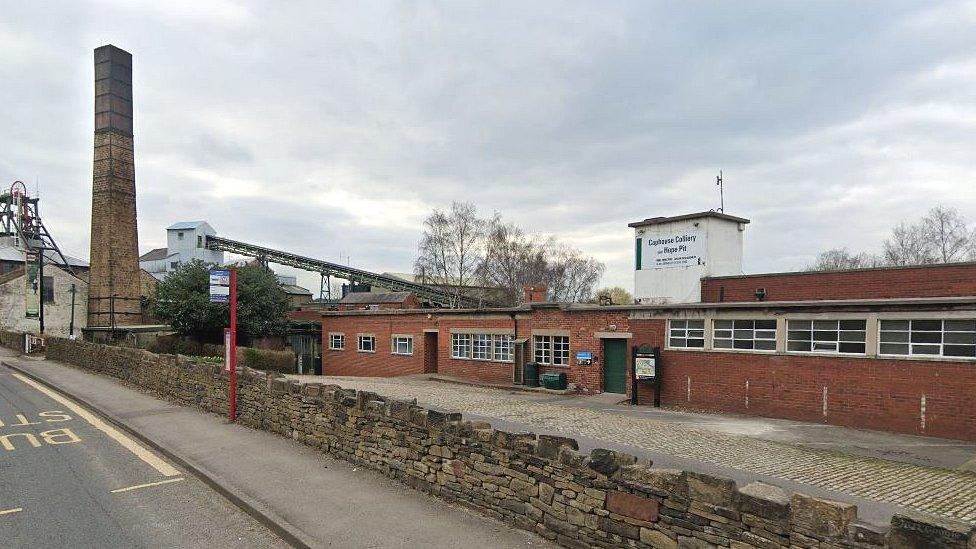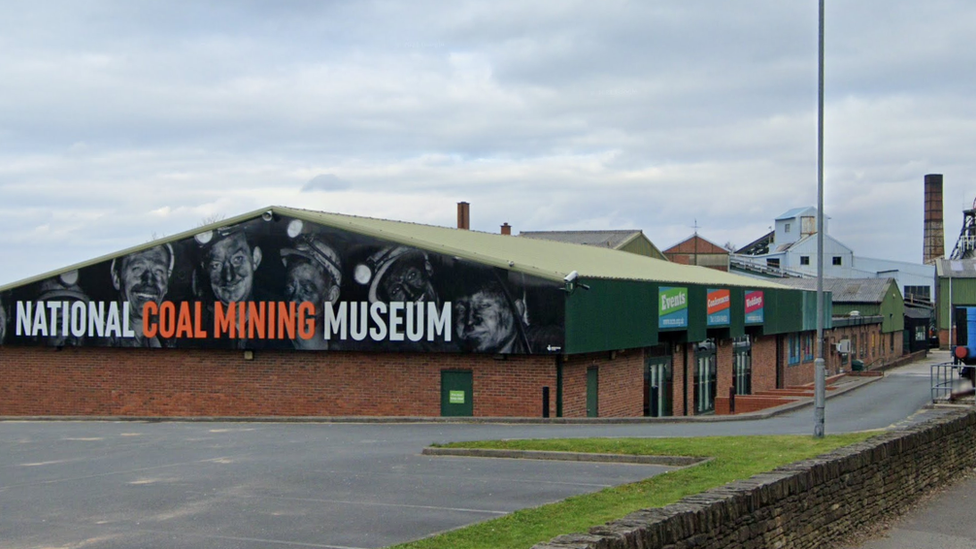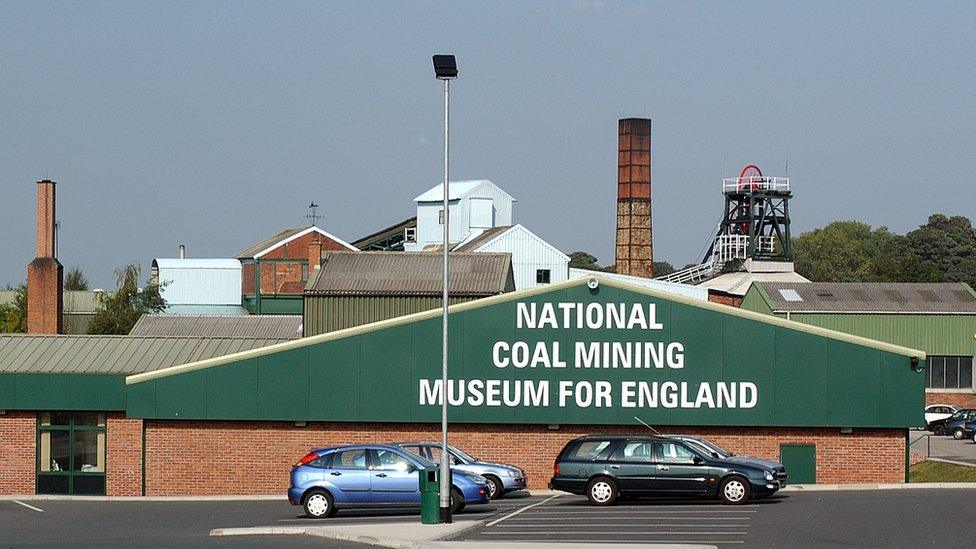Wakefield's National Coal Mining Museum strike begins
- Published

A museum statement said the strike would "deny visitors, many of them children, the chance to learn the story of mining"
Union members at the National Coal Mining Museum have begun strike action over pay.
Union officials said the Wakefield museum's pay offer was half the rate of inflation and members did not want to strike but "had no choice".
Strike action is set to run until Sunday 30 October, Unison said.
A statement on the museum's website said it had offered the maximum pay rise it could.
The statement said the museum "cared about its staff and volunteers" and had "offered a pay rise which equates to 6.8% for the lowest paid staff".
It continued: "We value the contribution of our people enormously and the sum of the proposal takes us to the maximum allowed within the government pay remit."
The statement said the museum hoped the action would be quickly resolved, "particularly as the strike was timed for the school holidays".

The museum offers free admission and is funded by the Department for Digital, Culture, Media and Sport
Writing on social media Unison Wakefield District Branch said there would be "a lively, friendly and welcoming picket line at the main entrance of the museum".
Unison's Wakefield branch secretary Sam Greenwood said 94.4% of members, on a turnout of 87.8%, had voted in favour of action.
The pay offer, he said, would leave many members struggling with the cost of living and some already relied on "in-work benefits and wage supplements because their pay is so low".
The Yorkshire Mining Museum opened on the site of the former Caphouse Colliery in 1988, but became a national museum in 1995.
The museum would be closed for the duration of the industrial action, officials said.

Follow BBC Yorkshire on Facebook, external, Twitter, external and Instagram, external. Send your story ideas to yorkslincs.news@bbc.co.uk, external.
Related topics
- Published20 October 2022

- Published3 June 2018
